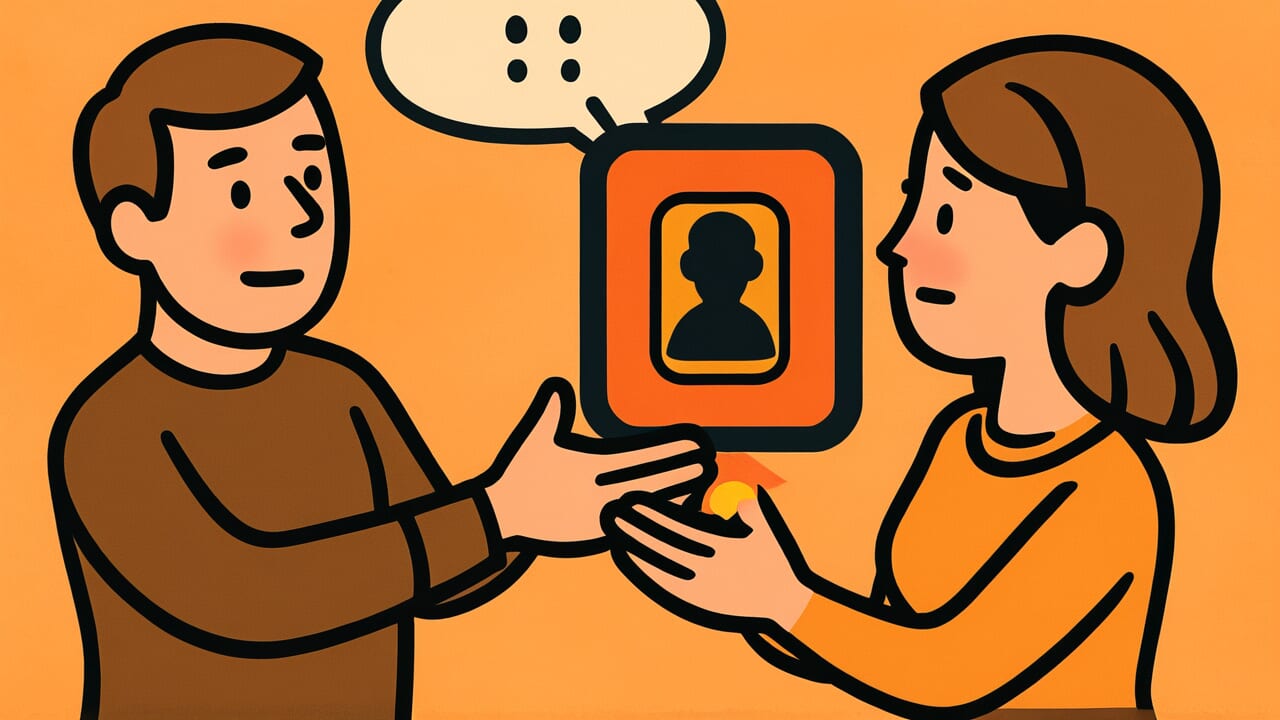How to Read “Close friends quarrel”
なかのよいでけんかする
Meaning of “Close friends quarrel”
This proverb shows a truth about human relationships. The closer people are, the less they hold back. They speak their true feelings and end up fighting more easily.
With family or best friends, you don’t need to be polite or formal. You trust them completely. So you say exactly what you think without filtering your words.
Your expectations also get higher with people you’re close to. You want them to understand you perfectly. Small things that you’d ignore with strangers become big deals with loved ones.
People use this proverb when they see close friends fighting. They also use it when they argue with someone they care about. It helps you remember that fighting doesn’t mean the relationship is bad.
Understanding “Close friends quarrel” gives comfort. It shows that conflict is actually a sign of closeness. Even today, this wisdom helps people feel better about family arguments or fights with best friends.
Origin and Etymology
No clear historical records explain exactly where this proverb came from. But we can learn interesting things by looking at how the words work together.
The phrase “仲のよい” means “close” or “on good terms.” The particle “で” here means “among” or “between.” So the full meaning is “among those who are close, quarrels happen.”
This proverb probably grew naturally from everyday life over many years. People noticed the same pattern again and again in families and friendships. Someone put this observation into words.
What’s interesting is that the proverb doesn’t treat fighting as bad. Instead, it accepts quarrels as a natural part of close relationships. This reflects Japanese views on human connections.
Japanese culture values politeness and formal manners with most people. But with truly close friends and family, you can drop those barriers. You can be completely honest. This proverb captures that dual structure of Japanese relationships.
This kind of insight comes from centuries of living together in tight-knit communities. It’s wisdom born from careful observation of human nature.
Usage Examples
- 兄弟なんて仲のよいで喧嘩するものだから、また明日には笑い合っているよ
- 親友だからこそ本音で言い合えるんだよね、仲のよいで喧嘩するって本当だわ
Universal Wisdom
This proverb reveals a deep truth about intimacy and conflict. Why do we fight most intensely with the people we love most?
The answer lies in psychological safety. With strangers or acquaintances, we carefully choose our words. We control our emotions to keep the peace. But with people we trust, those walls come down.
Being able to show your true self feels safe and comfortable. But that same comfort also removes your filter. You stop being careful about what you say or how you say it.
Expectations play a huge role too. With close people, you unconsciously expect them to understand you perfectly. You think they should know what you need without being told. When they don’t meet these expectations, disappointment turns to anger.
Things you’d easily forgive in a stranger become unforgivable in someone close. The difference is all about expectations.
But here’s the deeper insight. Fighting actually proves the relationship is strong. Being able to argue honestly means you trust the other person deeply. You believe the relationship can survive conflict.
Relationships where people only keep surface-level peace are actually fragile. Relationships where people sometimes clash but stay honest are much stronger and longer-lasting.
Our ancestors understood this paradox. They didn’t fear quarrels. Instead, they recognized the value of relationships strong enough to handle disagreement.
When AI Hears This
From a network theory perspective, quarrels between close friends are actually quite rational. Sociologist Granovetter explained the value of “weak ties.” But the flip side reveals unique problems with “strong ties.”
In close relationships, people share almost identical information. Friend A and Friend B might have 80 percent or more information overlap. This creates extremely high redundancy in the network.
The psychological distance approaches zero. You can predict each other’s behavior easily. Expectations become fixed. This is the “predictability trap.”
Quarrels look like relationship breakdowns. But they’re actually network re-optimization processes. Think of them as relationship maintenance work.
Fighting resets mutual expectations. It reviews fixed role divisions. It changes how information flows. This maintenance cost is worth paying only for “strong ties you don’t want to lose.”
You don’t quarrel with casual acquaintances. You can just cut those ties. But with close people, you pay the friction cost to keep adjusting the relationship dynamically.
This is actually a sophisticated strategy for long-term relationship maintenance. The system stays healthy through periodic recalibration.
Lessons for Today
“Close friends quarrel” teaches us not to fear arguments with people we care about. In today’s world of superficial social media “likes,” we need to remember the value of relationships where you can be truly honest.
The important thing isn’t the quarrel itself. It’s what happens after. When you understand that closeness causes conflict, you can see arguments differently. They’re not the end of a relationship. They’re stepping stones to deeper understanding.
When emotions run high, remember this proverb. Tell yourself, “We’re close enough to fight.” That perspective changes everything.
At work and at home, relationships where you can speak freely are precious. But this proverb doesn’t encourage fighting. Instead, it gives you wisdom to interpret conflicts positively and repair relationships.
Do you have people you can be completely honest with? When you disagree with them, that’s actually proof of your closeness. Don’t settle for surface-level peace. Value relationships where you can face each other with honesty.
That’s where real bonds grow.



Comments